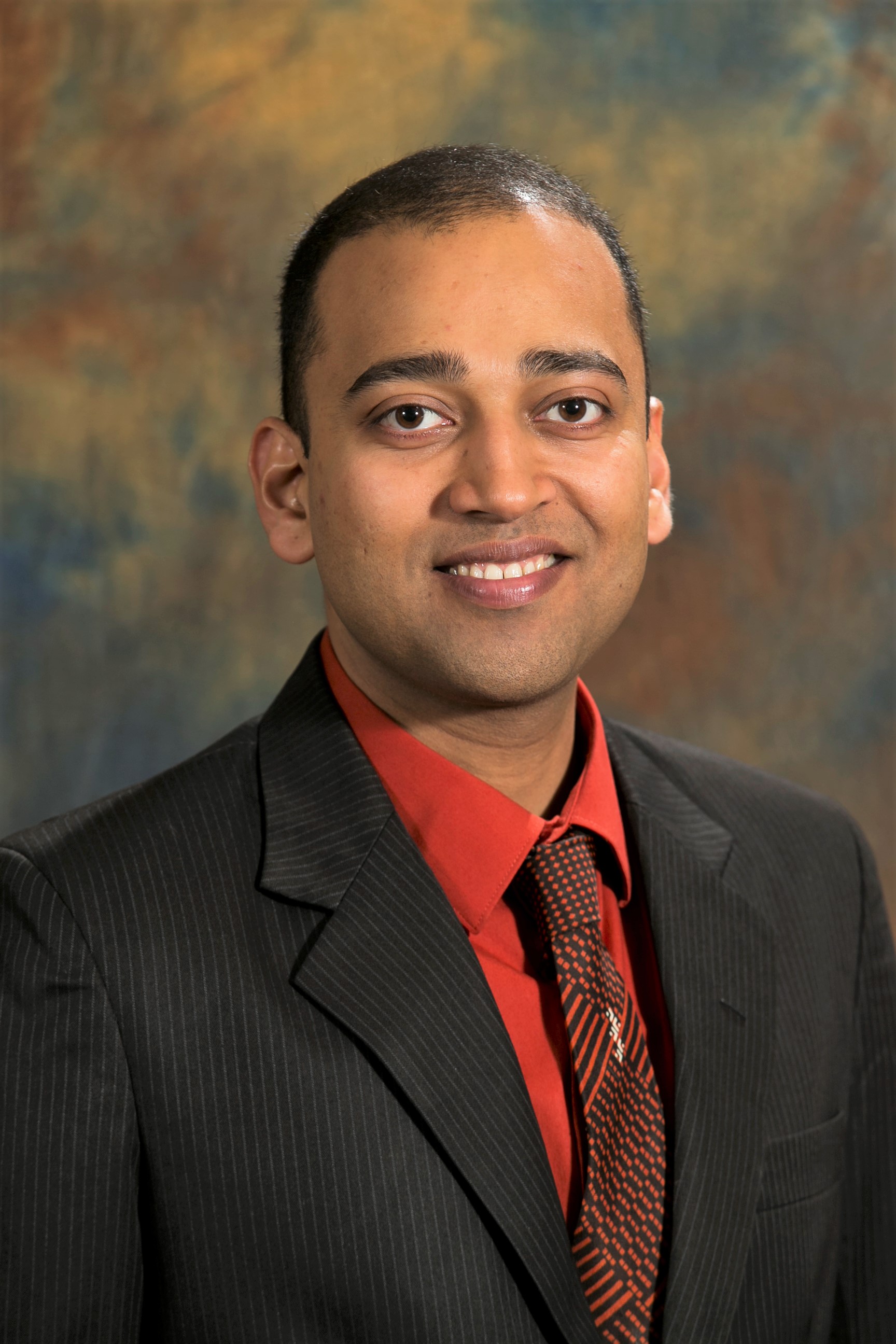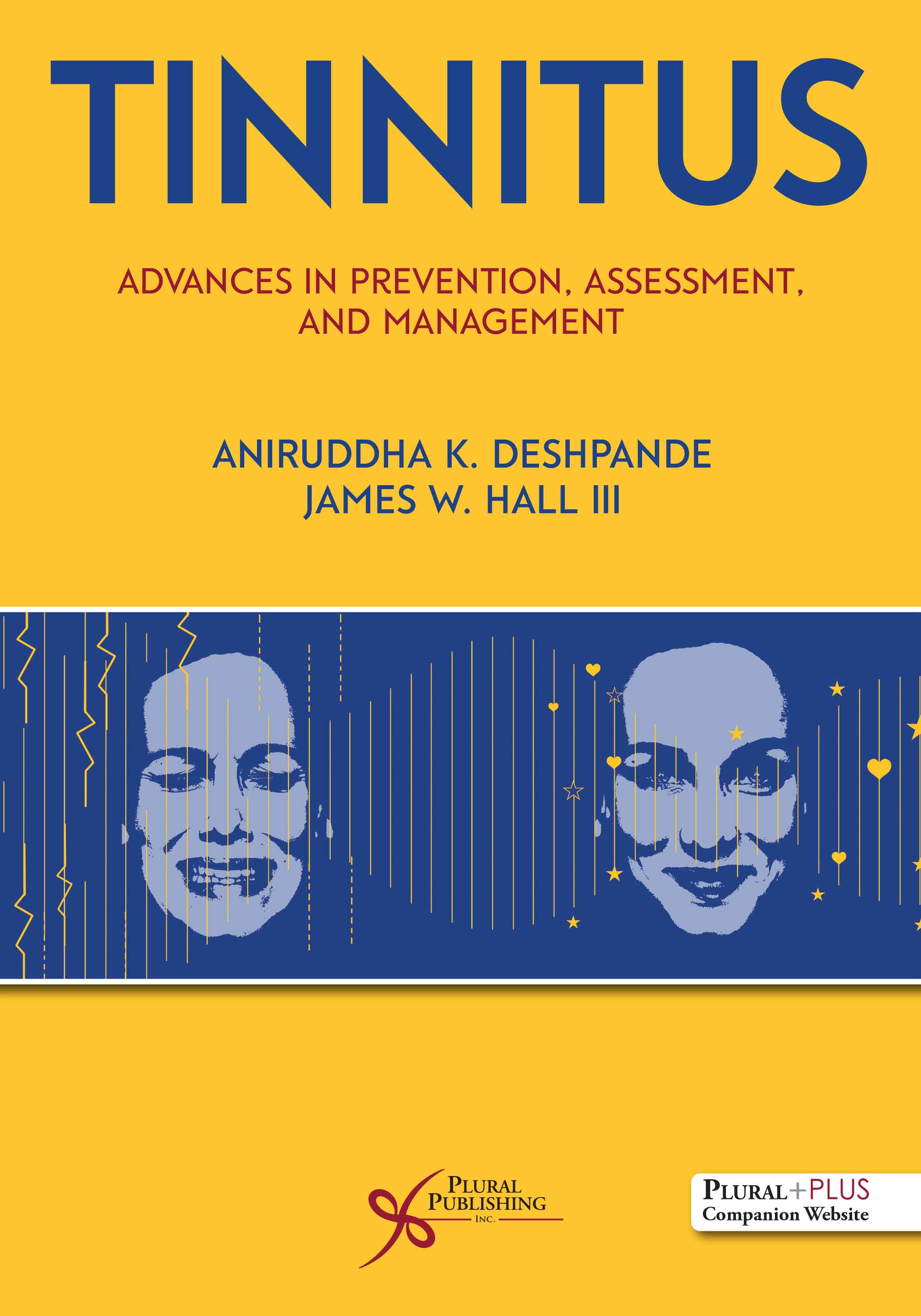
Tinnitus: Advances in Prevention, Assessment, and Management
First Edition
Aniruddha K. Deshpande, James W. Hall, III
Details: 406 pages, B&W, Softcover, 7" x 10"
ISBN13: 978-1-63550-342-5
© 2022 | Available
Purchase
Earn CEUs for taking the AudiologyOnline.com course based on this book.
CEUs/Hours Offered: AAA/4.75 Advanced; ACAud/47.5; AHIP/47.5; BAA/47.5; CAA/47.5; Calif SLPAB/47.5; IHS/47.5; Kansas, LTS-S0035/47.5; NZAS/3.0; SAC/47.5; TX TDLR/47.5 Non-manufacturer, TX-142-24-056
The term ‘tinnitus’ is searched over 110,000+ times every month. Unfortunately, much of the information readily available through internet searches is inaccurate, whereas most evidence-based information is only available through peer-reviewed journal articles often containing dense scientific jargon. Tinnitus: Advances in Prevention, Assessment, and Management aims to bridge this gap by providing up-to-date and evidence-based information on tinnitus prevention, assessment, and management. Presented in a quick, easy-to-read format, this text offers a practical and handy resource for busy practitioners and health profession students, as well as individuals with bothersome tinnitus.
Each section contains short chapters providing accessible overviews of research related to tinnitus and hyperacusis. Section I delves into various approaches for prevention of hearing loss and tinnitus. Section II covers tinnitus assessment, while Section III introduces readers to a range of tinnitus management solutions. Section IV focuses solely on recent advances in assessment and management of hyperacusis and other disorders of decreased sound tolerance. Authors of Section V review recent tinnitus-related developments, including social media use and COVID-19. The final section consists of interesting real-life case studies involving patients with bothersome tinnitus.
Key Features
- Interesting real-life tinnitus-related case studies puts new research into context
- More than 50 illustrations and tables help clarify and expand on key concepts covered throughout the text, enabling clinicians and students to more easily understand and apply complex material.
- Each chapter opens with a brief introduction and background on a tinnitus-related topic, followed by up-to-date, evidence-based, peer-reviewed research on the topic
- All chapters contain ideas for future research on the topic as well as clinical implications of the research
- Chapters end with key messages and references for further review of the topic
- A PluralPlus companion website with color versions of figures from the text and audio samples for Chapter 20
Reviews
“This book gives a thorough perusal of the history and research on tinnitus… Each chapter includes an introduction, background, recent advances, clinical applications, future directions, key messages, and references, which gives the text cohesiveness.
The first line of the preface, "Imagine not being able to hear silence... ever," screams of the necessity of this resource. This book offers a deep and broad covering of the topic of tinnitus.
This book is a treasure trove of all things tinnitus. It covers every detail about tinnitus including prevention, assessment, management, related disorders, recent developments, social media and apps on the subject, as well as COVID-19 implications. Research is the center focus of the book.
… One of the best aspects of the book is the illustrations that list the research so readers can quickly see the trends. Since almost 50% of the internet information on this topic is incorrect, this is an important work. This book provides peer-reviewed research leading to evidence-based practice for prevention, assessment, and management of tinnitus. The five case studies are very helpful to apply the information.”
–Lori J. Newport, AuD, Biola University, from Doody’s Reviews (August 2022)
“… This comprehensive book, edited by US audiologists Aniruddha K. Deshpande and James W. Hall III includes contributions from over 43 tinnitus experts from around the world and provides access to supplementary material on a companion website...
Tinnitus is a condition that almost every audiologist will encounter throughout their career. Having a good foundation of knowledge to assist people suffering from the effects of tinnitus is an important skill. This book aims to bridge the gap between easily accessible but often inaccurate information available on the internet and peer-reviewed journal articles containing dense scientific jargon. Although it gets very technical and can read like a journal article in parts (which is inevitable with such a complex topic), I feel that the authors have achieved their aims. This book is an excellent reference that more than adequately encompasses the complex field of tinnitus and would be a good resource in any clinic or educational setting.”
–Damon Shepherd, Accredited Audiologist, from Audiology Australia (December 2022)
“Tinnitus: Advances in Prevention, Assessment, and Management is a timely update on the current state of the art of tinnitus management. This multiauthored text provides an excellent explanation of the problem of tinnitus from several perspectives, including medical, audiological, public health, psychological, and even the social media perspective.
The text is divided into six sections: 1) prevention of hearing loss and tinnitus, 2) assessment of tinnitus, 3) management of tinnitus, 4) hyperacusis, 5) recent developments, and 6) illustrative clinical scenarios.
In section 1, a multidisciplinary group discusses mechanisms of tinnitus starting with noise induced tinnitus. There is a description of synaptopathy in noise-induced tinnitus and the role of central dysregulation after noise trauma in tinnitus…
In the management of tinnitus section, there is an interesting chapter on self-directed tinnitus therapy…The book does an excellent job of looking for evidence-based treatments and advising readers of the lack of evidence for much of the dietary supplement and complementary therapy management strategies. In the section on cutting edge approaches in tinnitus management, Drs. Leong and Vanneste do a superb job summarizing the state of the art of noninvasive neuromodulation for tinnitus including transcranial magnetic stimulation, transcranial direct current stimulation, transcranial alternating current stimulation, transcranial random noise stimulation, neurofeedback, and transcutaneous electrical nerve stimulation as well as transcutaneous vagus nerve stimulation…This chapter is a real highlight of the book with excellent references.
...The book even includes a chapter on implications of the COVID-19 pandemic for tinnitus evaluation and management…
Overall, this book is excellent to read as a cover-to-cover update or to use as a reference relying on the generous reference section and detailed index. This book is recommended for all clinicians who manage tinnitus patients as an update with modern references of the state of the art in tinnitus diagnosis and management. It is particularly applicable for otolaryngology residents and neurotology fellows as a comprehensive resource for tinnitus management with excellent clues for needed research in this growing field.”
–Moises Arriaga, MD, Louisiana State University Health Science Center, in Otology & Neurotology (December 2022)
Foreword
Preface
Acknowledgements
About the Artist
Contributors
Reviewers
Section I. Prevention of Hearing Loss and Tinnitus
Chapter 1. Mechanisms of Noise- and Music-Induced Tinnitus
Monica Trevino, Aastha Trehan, Celia D. Escabi, and Edward Lobarinas
Chapter 2. Genetic Basis of Tinnitus
Ishan Sunilkumar Bhatt
Chapter 3. Health Determinants and Modifiable Risk Factors of Tinnitus
Conner Jansen, Colleen Le Prell, and Christopher Spankovich
Chapter 4. Toward Integration of Soundmaps in Tinnitus Research
Tae Hong Park
Section II. Assessment of Tinnitus
Chapter 5. The Importance of Patient History
Patricia C, Mancini and Richard Tyler
Chapter 6. Audiological Assessment of Tinnitus
James W. Hall, III
Chapter 7. App-Based Tinnitus Assessment
Magdalena Sereda, Derek J. Hoare, and Aniruddha K. Deshpande
Chapter 8. Objective Diagnosis of Tinnitus
Jos J. Eggermont
Section III. Management of Tinnitus
Chapter 9. Self-Directed Tinnitus Therapy: A Review of At-Home Tinnitus Therapy Options
Grant D. Searchfield and Sun-Jae (Jay) Kim
Chapter 10. The Role of Amplification in Tinnitus Management
Giriraj Singh Shekhawat, Laure Jacquemin, and Roland Schattee
Chapter 11. Audiologist-Delivered Cognitive Behavioral Therapy for Tinnitus
Eldré W. Beukes and Vinaya Manchaiah
Chapter 12. Application of Teleaudiology to the Clinical Management of Tinnitus
James A. Henry, Emily J. Thielman, and Leslie D. Grush
Chapter 13. Cutting-Edge Approaches in Tinnitus Management
Sook Ling Leong and Sven Vanneste
Chapter 14. Dietary Supplements, Essential Oils, and Cannabinoids for Tinnitus Relief
Robert M. DiSogra, Colleen A. O’Brien-Russo, and Aniruddha K. Deshpande
Chapter 15. Complementary and Alternative Medicine and Tinnitus
Gemma Crundwell and David M. Baguley
Chapter 16. Values-Led Care in Tinnitus
Helen Pryce
Section IV. Hyperacusis
Chapter 17 – Hyperacusis and Misophonia
Hashir Aazh
Section V. Recent Developments
Chapter 18. The Role of Social Media in Tinnitus and Hyperacusis
Colleen O’Brien-Russo and Aniruddha K. Deshpande
Chapter 19. Implications of the COVID-19 Pandemic for Tinnitus
Eldré Beukes and Vinaya Manchaiah
Section VI: Illustrative Clinical Scenarios
Chapter 20. Case Study 1: Asymmetrical Sensorineural Hearing Loss and Tinnitus
Aniruddha Deshpande and Lisa Mener
Chapter 21. Case Study 2: Sudden Sensorineural Hearing Loss and Tinnitus
Aniruddha Deshpande and Diana Callesano
Chapter 22. Case Study 3: Pulsatile Tinnitus
Adwight Risbud, Mehdi Abouzari, and Hamid R. Djalilian
Chapter 23. Case Study 4: Managing Debilitating Tinnitus in a Patient with Complex Comorbidities
Tricia L. Scaglione, Lori Zitelli, and David P. Jedlicka
Chapter 24. Case Study 5: Somatosensory Tinnitus
Maja Svrakic
Purchase of Tinnitus: Advances in Prevention, Assessment, and Management comes with access to supplementary materials on a PluralPlus companion website.
The companion website is located at: http://www.pluralpublishing.com/publication/tampam
To access the student resources, you must register on the companion website and log in using the access code located in the front of your textbook.
*Note for students: If you have purchased this textbook used or have rented it, your access code will not work if it was already redeemed by the original buyer of the book. Plural Publishing does not offer replacement access codes for used or rented textbooks.
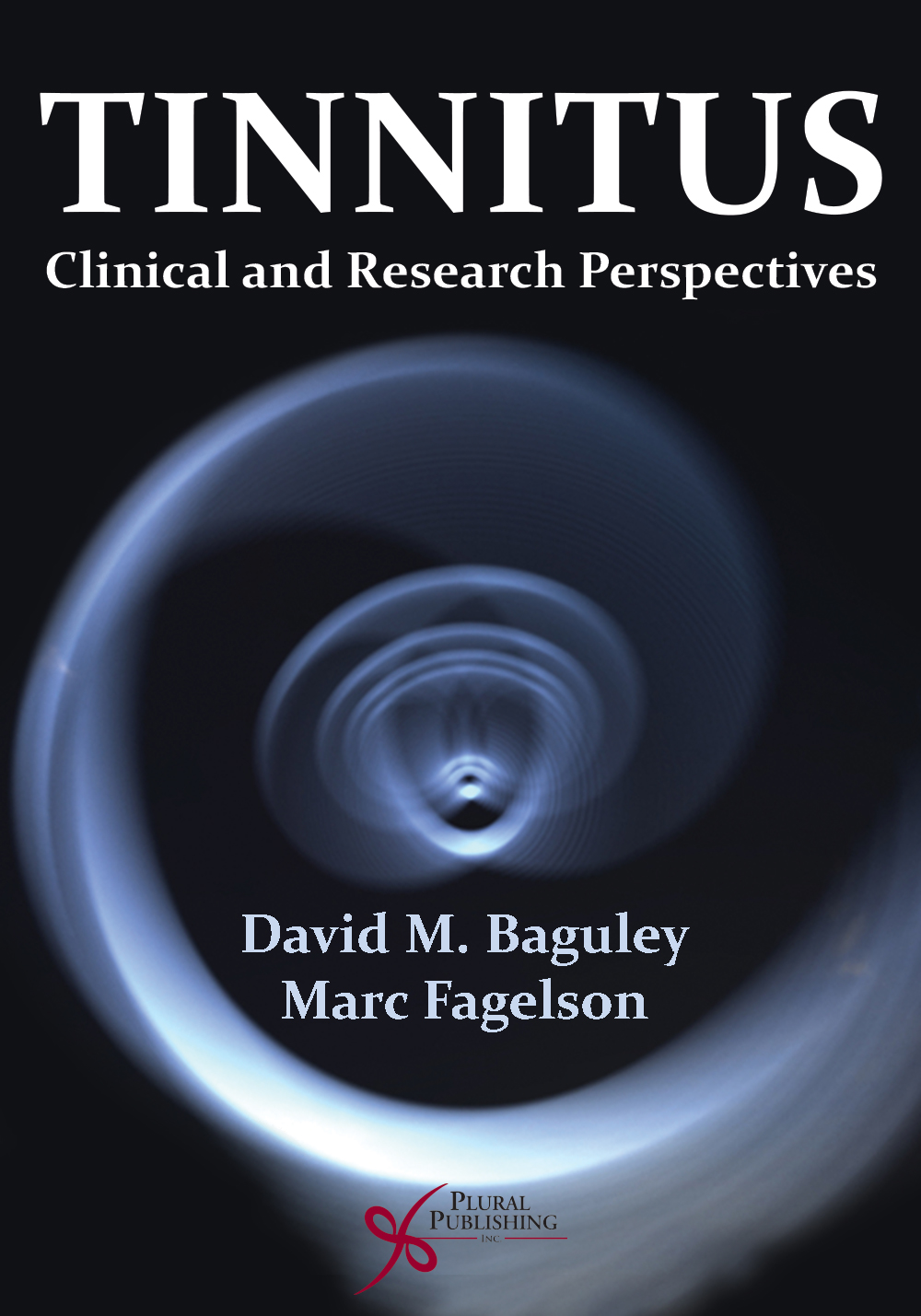
Tinnitus: Clinical and Research Perspectives
First Edition
David M. Baguley, Marc Fagelson
Details: 364 pages, B&W, Softcover, 7" x 10"
ISBN13: 978-1-59756-721-3
© 2016 | Available
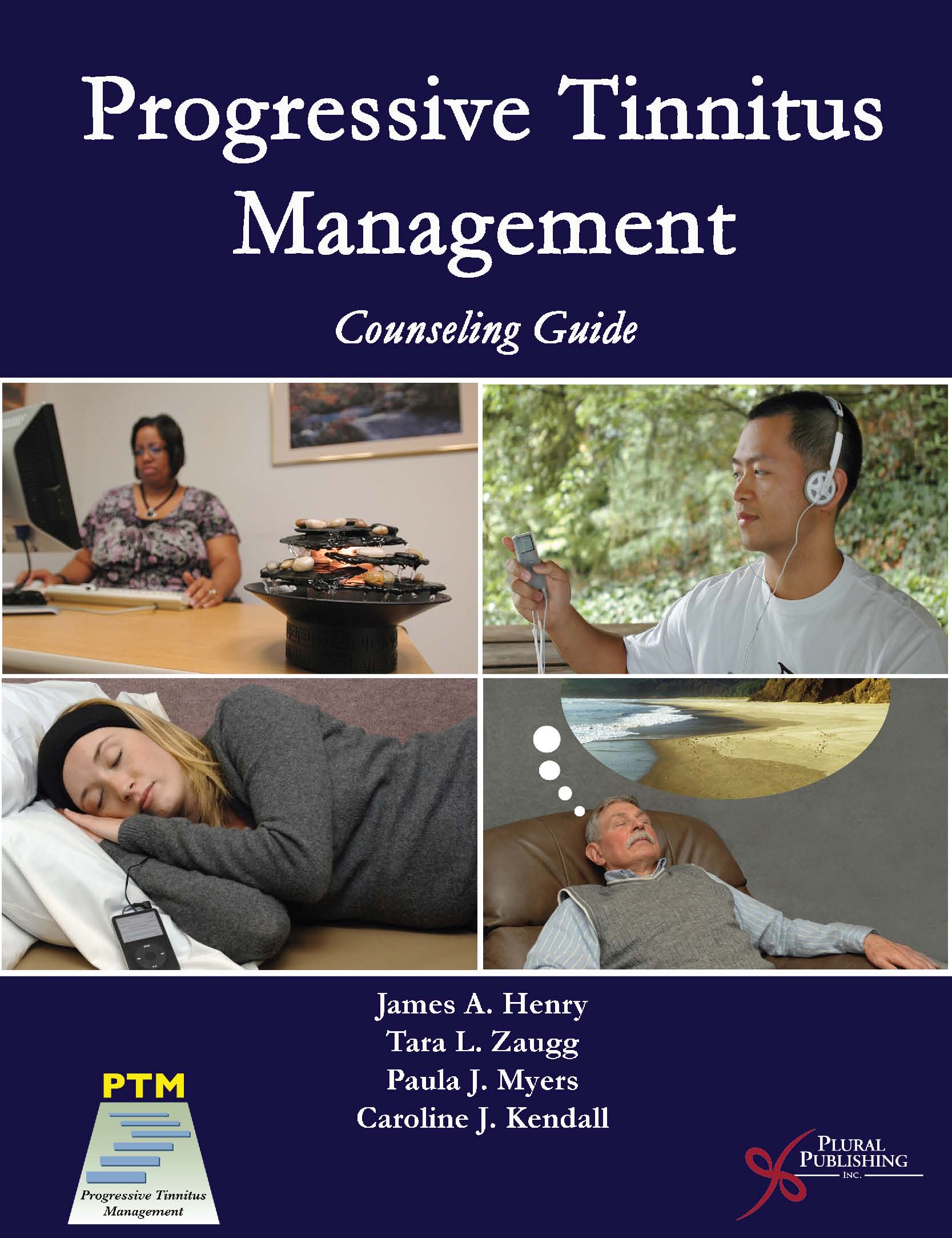
Progressive Tinnitus Management: Counseling Guide
First Edition
James A. Henry, Tara Zaugg, Paula Myers, Caroline J. Kendall
Details: 300 pages, B&W, Spiral Bound + CD, 8.5" x 11"
ISBN13: 978-1-59756-408-3
© 2010 | Available
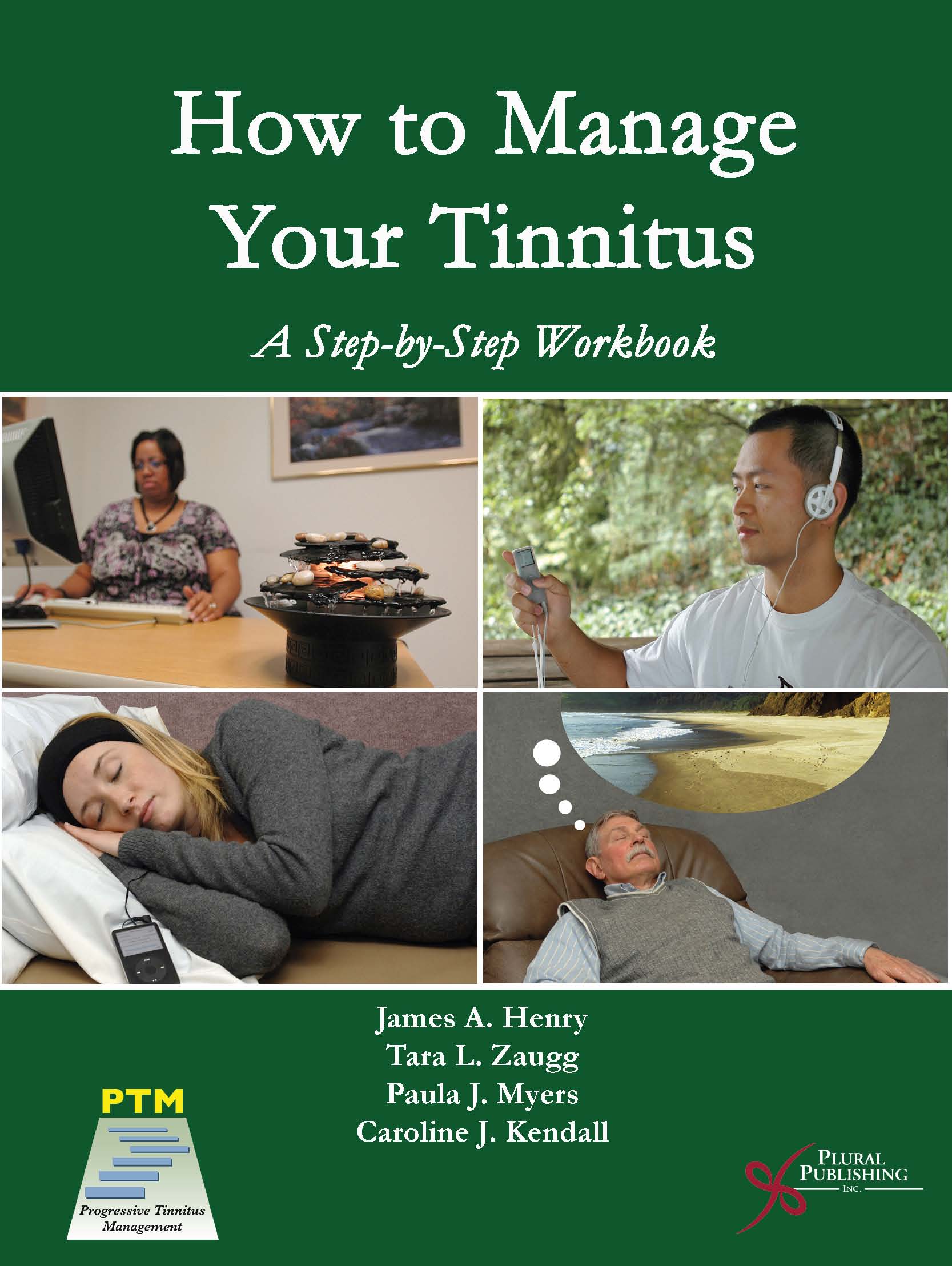
How to Manage Your Tinnitus: A Step-by-Step Workbook
First Edition
James A. Henry, Tara Zaugg, Paula Myers, Caroline J. Kendall
Details: 130 pages, Full Color, Spiral Bound + CD and DVD, 8.5" x 11"
ISBN13: 978-1-59756-409-0
© 2010 | Available
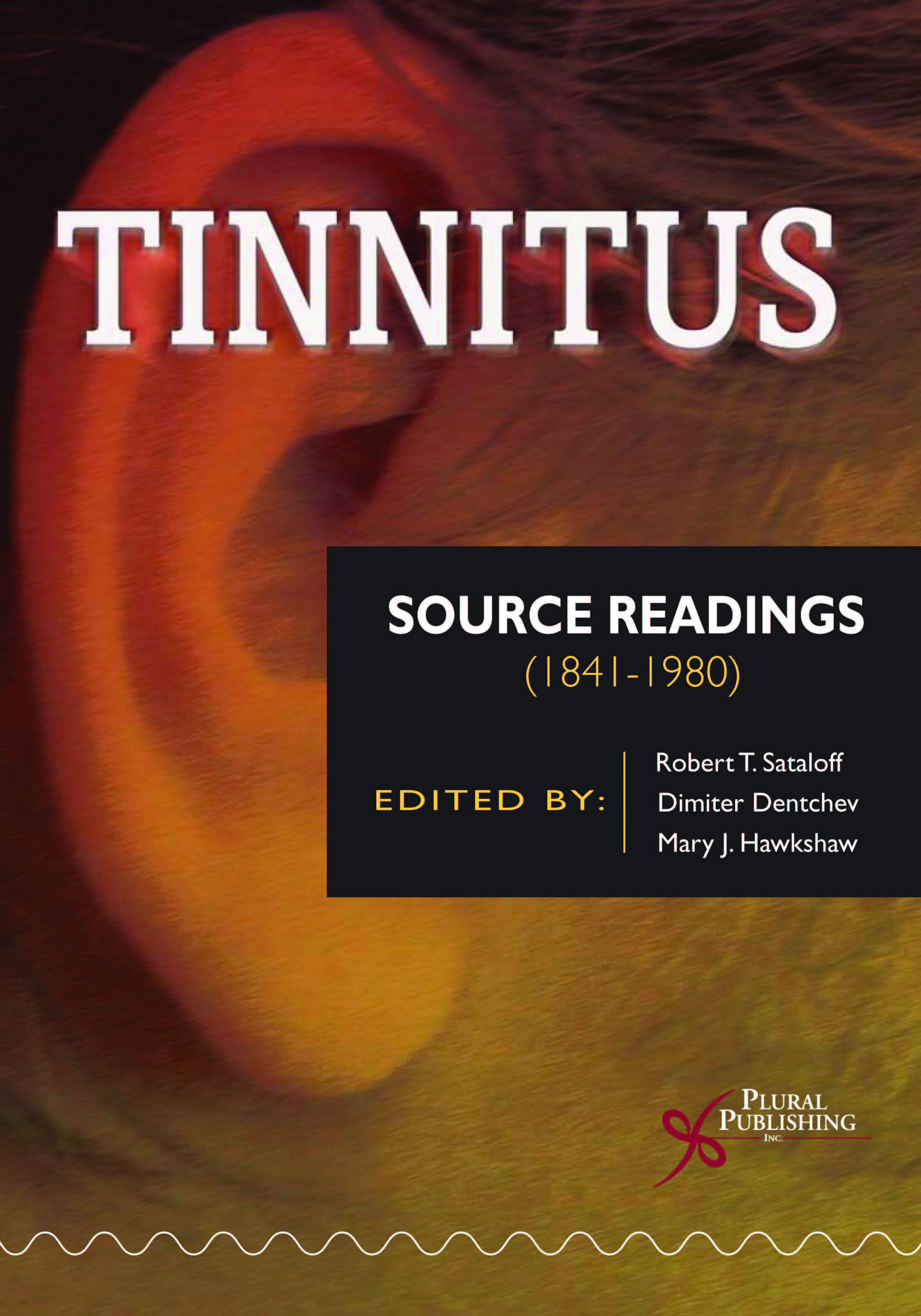
Tinnitus Source Readings (1841-1980)
First Edition
Robert T. Sataloff
Details: 372 pages, 2-Color, Softcover, 7" x 10"
ISBN13: 978-1-59756-116-7
© 2007 | Available
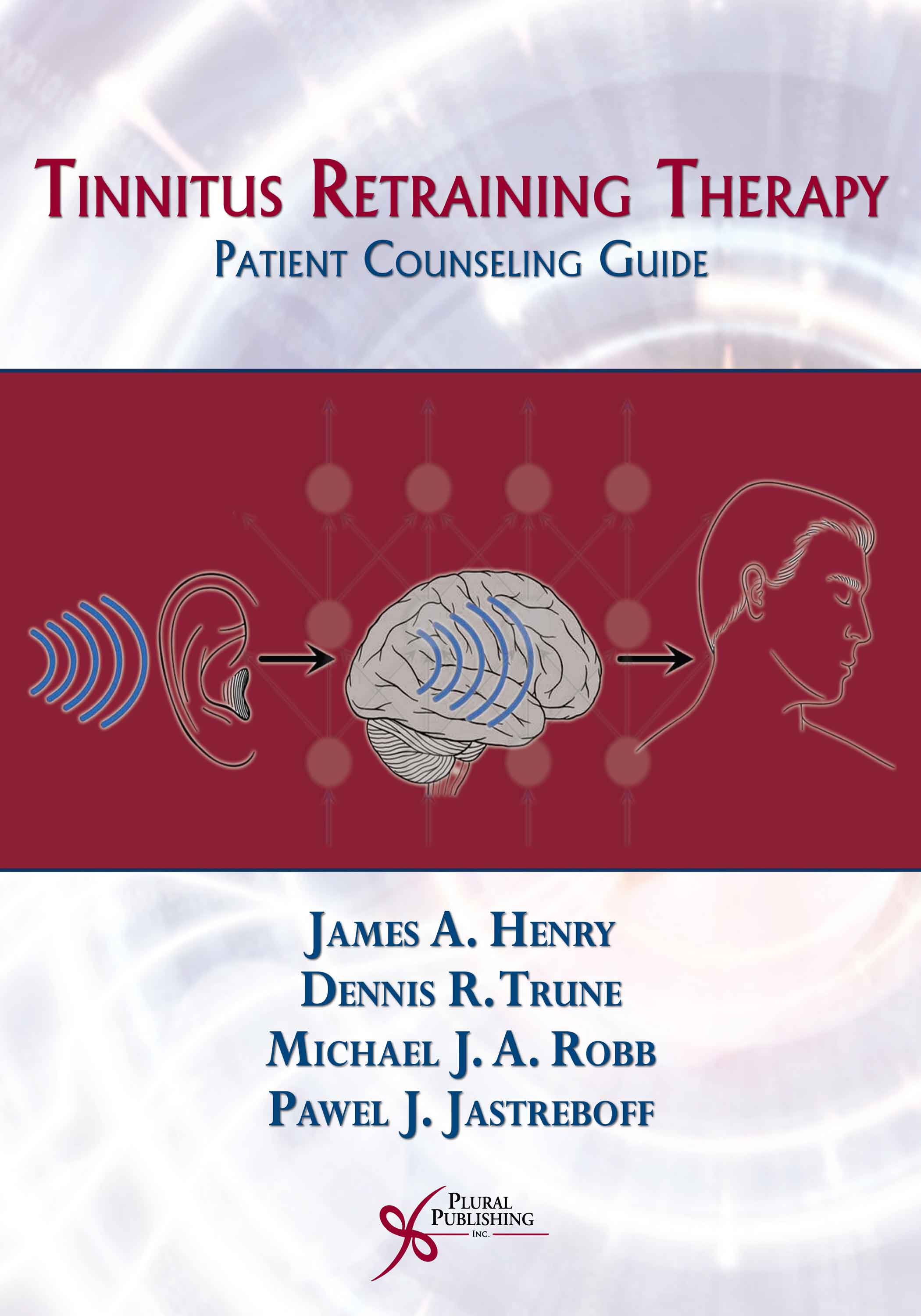
Tinnitus Retraining Therapy: Patient Counseling Guide
First Edition
James A. Henry, Dennis R. Trune, Michael J.A. Robb, Pawel J. Jastreboff
Details: 174 pages, Full Color, Spiral Bound, 8.5" x 11"
ISBN13: 978-1-59756-155-6
© 2007 | Available
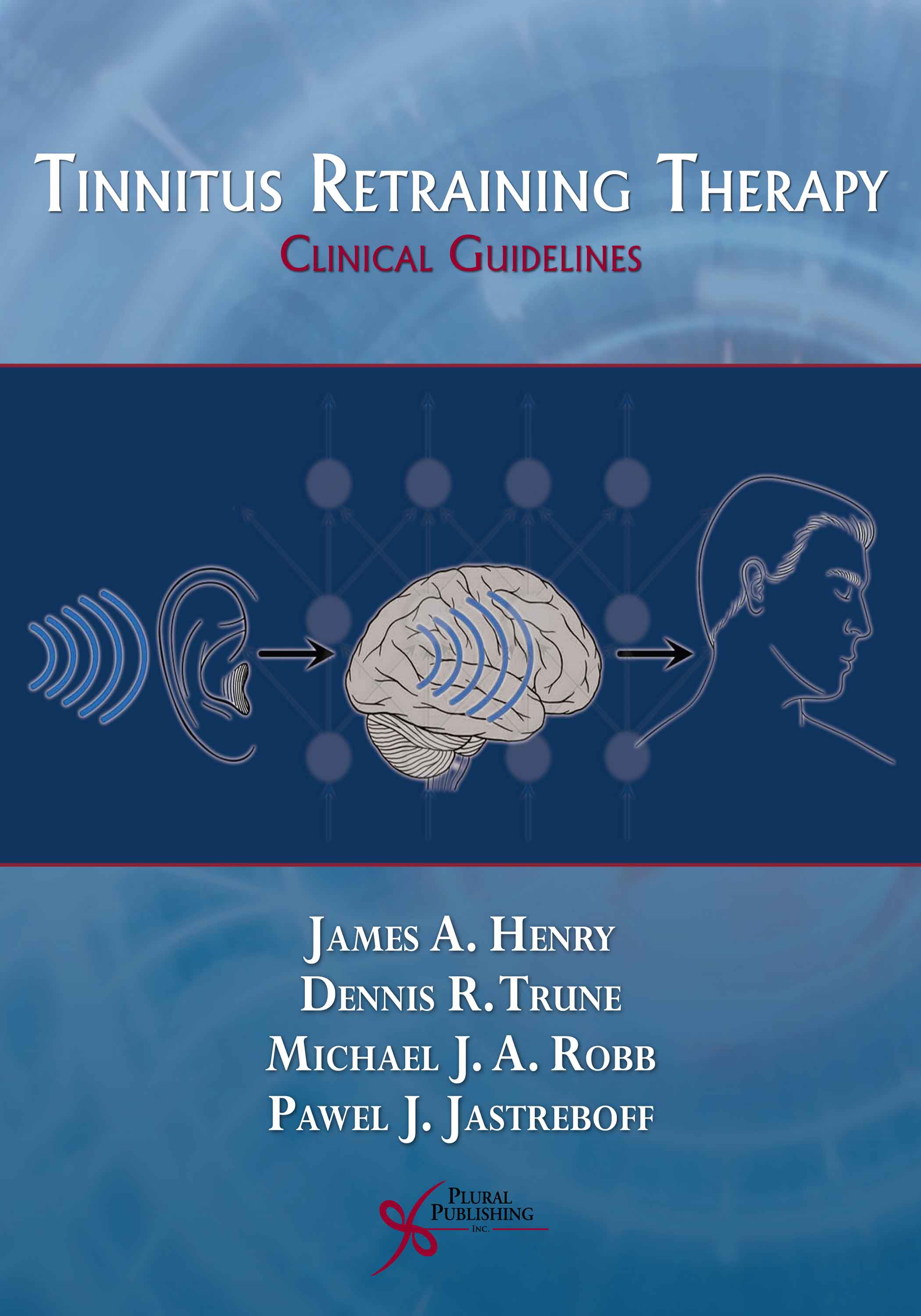
Tinnitus Retraining Therapy: Clinical Guidelines
First Edition
James A. Henry, Dennis R. Trune, Michael J.A. Robb, Pawel J. Jastreboff
Details: 167 pages, B&W, Softcover, 8.5" x 11"
ISBN13: 978-1-59756-154-9
© 2007 | Available
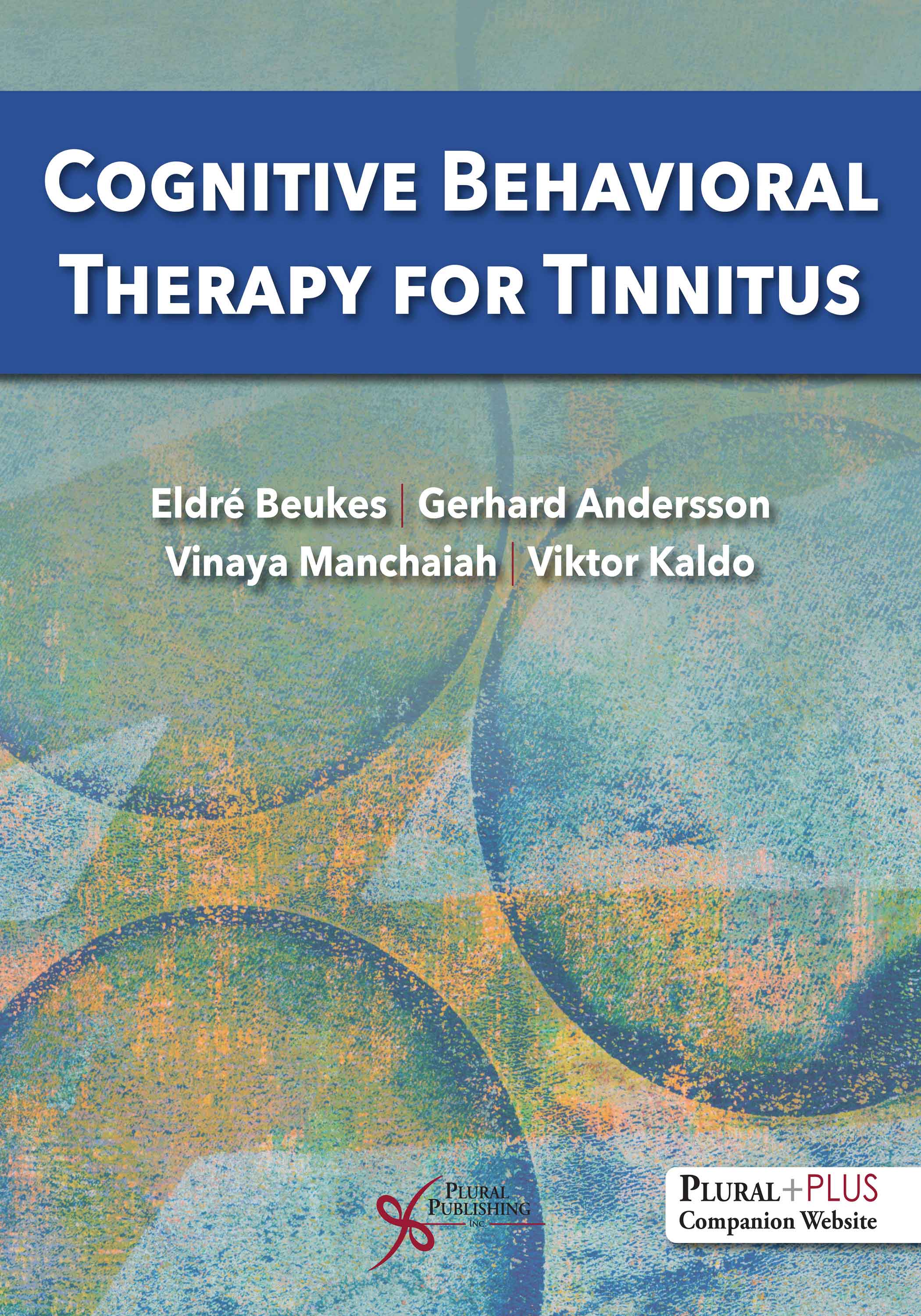
Cognitive Behavioral Therapy for Tinnitus
First Edition
Eldré W. Beukes, Gerhard Andersson, Vinaya Manchaiah, Viktor Kaldo
Details: 256 pages, B&W, Softcover, 8.5" x 11"
ISBN13: 978-1-63550-299-2
© 2021 | Available
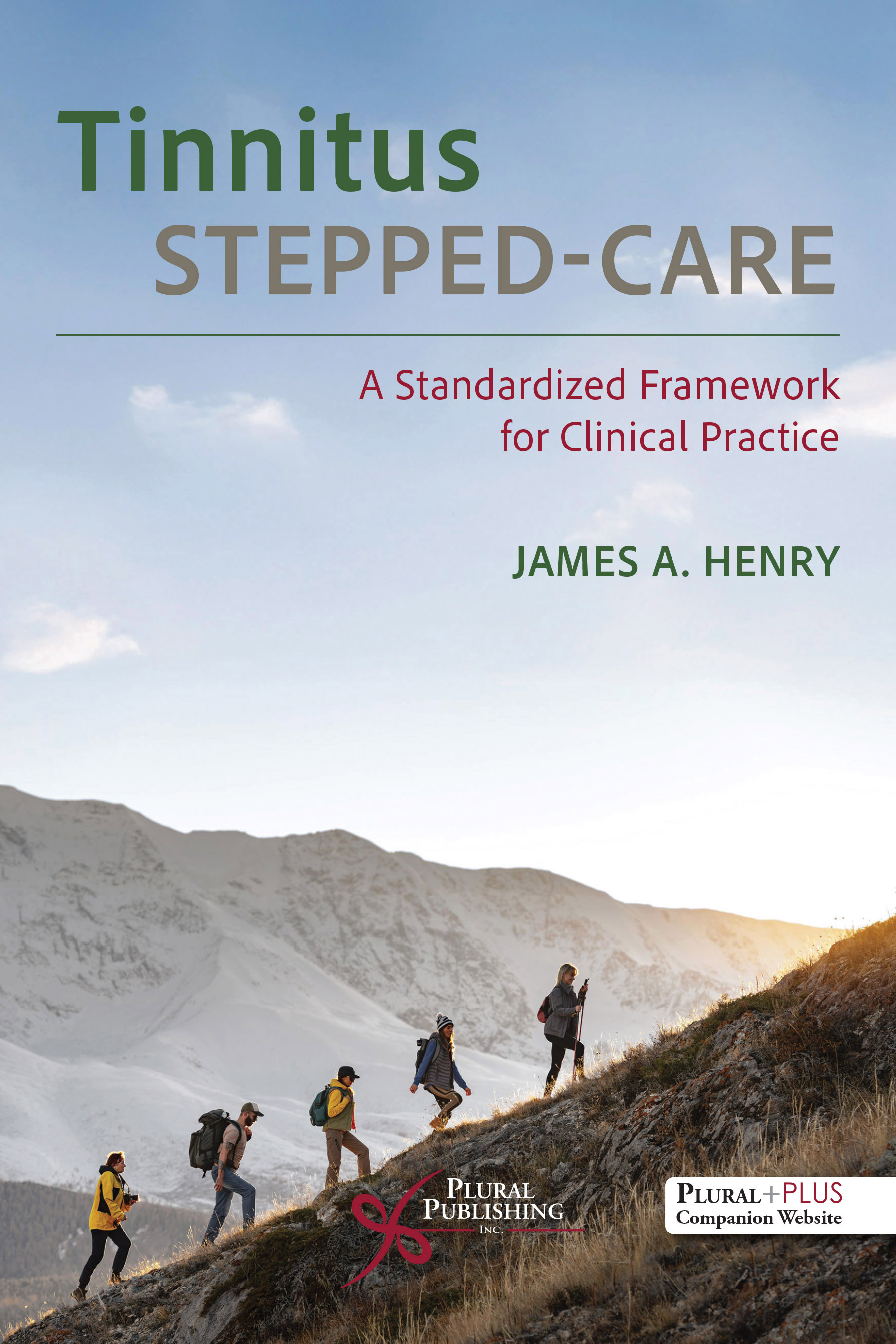
Tinnitus Stepped-Care: A Standardized Framework for Clinical Practice
First Edition
James A. Henry
Details: 286 pages, B&W, Softcover, 6" x 9"
ISBN13: 978-1-63550-791-1
© 2026 | Available

